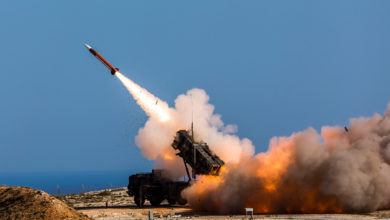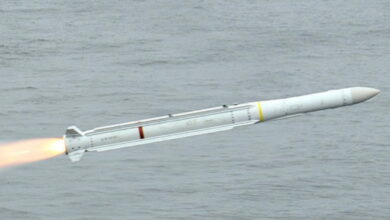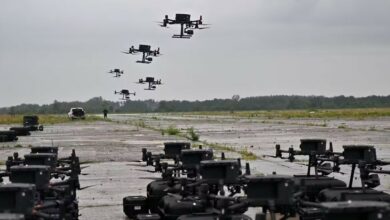UK to Test New Anti-Drone Laser on Wolfhound Tactical Vehicles
The United Kingdom will begin testing Raytheon’s high-energy laser weapon system (HELWS) on its Wolfhound tactical support vehicle for a period to last six months.
According to Raytheon senior regional director Jason Nelsen, the experimentation period will demonstrate the vehicle’s capabilities in taking down enemy drones with the weapon system. It will also give the armed forces the needed strength and accuracy against increasing aerial threats.
The laser weapon features a multi-spectral targeting system and an electro-optical and infrared sensor that enables increased precision in hitting targets, as it provides accuracy confirmation after locking onto enemy drones.
Furthermore, the laser is equipped with a command-and-control system, global positioning system (GPS) antenna, and an external tracker developed in the UK.
“When you’re trying to take out a UAS [unmanned aerial system], you need to be very precise,” Nelsen said, as quoted by National Defense. “It would be like a laser pointer — if you’re trying to focus on a presentation, and it’s all over the place, all that power is moving around… [and] it’s not effective.”
Investment in Lasers, Other Next-Gen Weapons
The UK is investing nearly $100 million in new directed energy weapons, including lasers that can shoot down drones and a radio capable of detecting and tracking targets.
Director of strategic programs for the Ministry of Defence, Shima Fhima, explained that investing in directed energy weapons could revolutionize the future battlefield for the armed forces and allow soldiers to meet mission objectives in new ways.
She also pointed out that the system is powered solely by electricity and can operate without ammunition, significantly reducing operating costs and providing offensive and defensive flexibility to soldiers during missions.
Meanwhile, UK minister for defense procurement Jeremy Quin stressed that directed energy weapons are crucial for the country’s future equipment programs. He also said the UK intends to become a “world-leader” in researching, manufacturing, and implementing next-generation technology.












